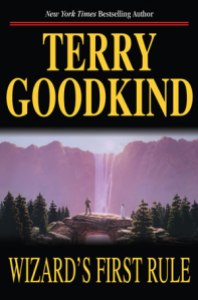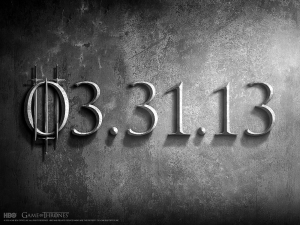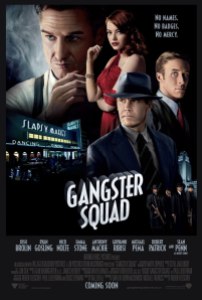Let’s go back to the start of the 2012 NFL season. If you had to choose who would be the starting quarterback for the NFC in the Superbowl, who would you have chosen?
If you knew something about football, you probably would’ve guessed someone like Aaron Rodgers. You might’ve said Matt Ryan or Tony Romo, maybe even Eli Manning for a second year in a row. If you had said Alex Smith, you would’ve been close.
If you had said Colin Kaepernick, you’d be omniscient.
Kaepernick basically came out of nowhere to lead the 49ers to the Superbowl, and in large part he did it with his legs. His success marks the beginning of a new era in the NFL: the era of the mobile quarterback.
The NCAA has seen its share of mobile quarterbacks. Of the three Heisman finalists this year, two were quarterbacks with more than 1,000 rush yards. But the NFL has never been a running quarterback league, with the exception of a handful of special cases, such as Michael Vick.
The difference between the mobile quarterback and the pocket passer is obvious; while the pocket passer may have the superior arm, the mobile quarterback has a second dimension to his game. If everyone is covered downfield, a Colin Kaepernick type player can run for the first down. Compare that to a Tom Brady, who is indeed a far better passer, but really can’t do much if everyone’s covered. Furthermore, the mobile quarterback can roll out of the pocket to buy time for receivers to get open.
I’d trace the seeds of the mobile quarterback phenomenon back to April 28th, 2011. More specifically, this was the day the Carolina Panthers took Cam Newton number one in the draft. Newton was the Heisman winner in his senior year at Auburn, racking up running back type rush numbers (1473 yards and 20 touchdowns). Rushing was and still is a big part of Newton’s game, and his mobility helped him to win the 2011 AP Offensive Rookie of the Year Award. The 2012 Award went to Robert Griffin III, who ran for 815 yards and added 7 touchdowns. Clearly, it seems that the league is moving in a different direction.
The conversion to mobile quarterbacks only continued with this past season. On November 19th, 2012, Niner’s starter Alex Smith was ruled unable to play with a concussion. Coach Jim Harbaugh selected an unknown rookie named Colin Kaepernick to start. Kaepernick had already replaced Smith in the previous week against the Rams, putting up decent numbers, but only managing to earn a tie. Against the Bears, however, he put on a clinic; 16 for 23, 243 yards, 2 touchdowns, no interceptions.
After the game, Harbaugh expressed interest in the possibility of starting Kaepernik again, even if Smith was healthy. “Usually tend to go with the guy who’s got the hot hand, and we’ve got two quarterbacks that have got a hot hand.”
Sure enough, Kaepernick started again the following week against the Saints, despite Alex Smith being cleared to play. He led the 49ers to another win, going 16 of 25 for 231 yards with one touchdown and one pick, also adding a touchdown on the ground. It was assumed that Coach Harbaugh went with Kaepernick because he could throw the ball downfield, and also because of his explosive mobility.
Kaepernick’s ability to run was proven yet again in the playoffs against the Packers, when he set the NFL postseason record in rush yards by a quarterback, a stunning 181 yards with two touchdowns. In the Superbowl, Karpernick added 62 more yards on the ground, along with the longest touchdown run by a quarterback in Superbowl history, a 15 yard score.
But Kaepernick and Newton aren’t alone. There’s the aforementioned Robert Griffin III from Washington, and fellow rookie Russell Wilson from Seattle, who had 489 yards on the ground. In fact, among the top five quarterbacks in quarterback rating this year, two were mobile quarterbacks with more than 450 rush yards.
So the question is, why now? Why are we seeing so many quarterbacks who are more mobile than ever before?
For one, I think it has to do with a recent influx of college coaches to the NFL. Many teams are hiring coaches from huge programs, such as Jim Harbaugh in San Francisco, Pete Caroll in Seattle, and even more recently Chip Kelly in Philadelphia. These coaches are bringing college style offenses with them, and the mobile quarterback thrives in the college system. Guys like Kaepernick might’ve once been dismissed in a pro-style offense. In the college style, they are embraced.
Also, I think that the success of Michael Vick in 2010 really opened the door for mobile quarterbacks. After returning from a two year, highly publicized jail term for dogfighting, Vick became the starter for the Eagles in 2010 and never looked back. He put up career highs in completion percentage (62.6%), touchdown passes (21), and quarterback rating (100.2), all the while showing the league that mobile quarterbacks can be successful. Cam Newton followed the year after, then Kaepernik, Wilson, and Griffin, and the phenomenon began.
Will the rest of the NFL catch on to the trend? Remember, the AFC’s representative in the Superbowl was Joe Flacco, and he’s anything but fast. Most of the league is still composed of pocket passers. Furthermore, this isn’t the first time that running quarterbacks have been all the rage in the league.
A few years ago, the Wildcat offense was sweeping the NFL, and many mobile quarterbacks appeared seemingly just for the package; players like West Virginia’s Pat White, Missouri’s Brad Smith, and even Florida’s Tim Tebow. The package seemed to work well enough for the Dolphins in 2008, and Tim Tebow had a very impressive run with the Broncos in 2011. But since then, this batch of mobile quarterbacks seems to have dwindled. White hasn’t been in pro football since 2010, Smith only occasionally gets playing time at quarterback, and Tebow gets even less. Even the once prolific Michael Vick seems to be at the end of his career, largely due to injury.
I think the key difference between these old mobile quarterbacks and the new ones is the balance between throwing and passing ability. The old mobile quarterbacks were all speed. For example, Michael Vick was never great at passing, having a lifetime quarterback rating of just 80.6. But Vick excelled because he could run, setting the single season record for QB rush yards at 1039. Tebow and White were the same; mostly running ability, but little passing ability. And in the case of Vick, all that running led to big hits outside of the pocket, making him a huge injury risk.
The new mobile quarterbacks augment their passing game with their running game rather than relying on it. It’s like a delicate recipe; a little running ability mixed with good passing is better than a little passing and good running. And if the legs aren’t the primary weapon, the player is less likely to be injured.
League wide, support seems to be mixed on the running quarterback. Aaron Rodgers, starting quarterback of the Green Bay Packers, was recently asked what he thought of the new “pistol” offense that many mobile quarterbacks run out of. Rodgers said: “I think the league is cyclical. Things have come back around that have been used 20, 30 years ago. But this, too, I think, will pass. Some of the pistol, read-option stuff will eventually pass.” However, in that same interview, Rodgers went on to say, “The athletic quarterback, I don’t think, is going to pass at all.”
Will the mobile quarterback survive? Only time will tell. Personally, I think that the mobile quarterback is indeed here to stay. Robert Griffin III and Russell Wilson are just rookies, and Colin Kaepernick and Cam Newton are just second year players. The incoming talents of Kansas State’s Colin Klein and Texas Tech’s freshman sensation Johnny Manziel will only add to the already growing number. In a few short years, the mobile quarterback may very well be what all the teams are looking for on draft day.










